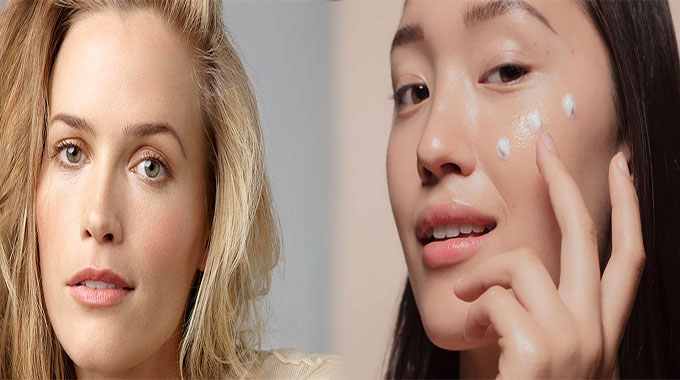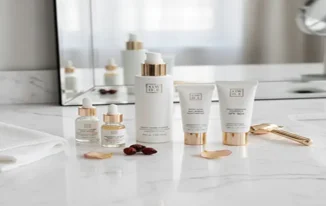If you are worried about your skin, you may want to learn more about anti-aging skin care. There are a number of things you can do to help your skin, including using a moisturizing cream, wearing sunscreen, and keeping your face clean. Let’s take a look at some of the top products for anti-aging skincare.
Exfoliation
Exfoliation is the process of removing the dead cells from the top layer of your skin. This helps to reveal the newer, brighter cells below. It also improves circulation, which gives you a glowing complexion.
There are different types of exfoliation, but the most effective involves the manual use of a scrubbing pad or a washcloth. Make sure the scrub you use has smooth granules, not coarse or gritty ones.
A good quality facial mask is another way to enhance the effects of a scrubbing routine. This will cleanse your pores, allowing the rest of your skincare products to penetrate the skin more effectively.
Using a serum with vitamin C is a good idea, since it is a proven ingredient that can fade dark spots and improve the texture of your skin. You can also supplement with an antioxidant-rich oil that will nourish your skin and infuse it with vitamins.
Hydrating cleanser
If you are looking to create an anti-aging skin care routine for the 30s, a hydrating cleanser may be the key to improving the quality of your skin. Using a cleanser will eliminate excess oil and impurities, leaving your skin smooth, soft, and younger looking.
The first step in any skincare routine should be cleansing. To remove makeup and excess oil, apply a gentle, soap-free cleanser to clean skin. Follow up with a toner to tone and hydrate skin. This step will also help fight signs of aging, such as dullness and uneven skin tone.
For acne-prone or sensitive skin, look for a non-comedogenic cleanser. Many acne- fighting cleansers contain ingredients that can irritate your skin. Try a product with ingredients like apricot kernel extract, jojoba, and lavender to protect your skin from irritation.
Retinol
If you want to reduce the appearance of wrinkles, clogged pores and dark spots, retinol may be the answer. Retinol is a derivative of Vitamin A. It helps promote cell turnover and increases collagen production. The results are clearer and smoother skin.
Although retinol can be quite effective, it can cause unwanted side effects. To prevent these, choose a product that is suitable for your skin type. And always use a moisturizer or sunscreen with SPF 30 to protect your face.
As with any anti-aging product, you need to know how to apply it to avoid any negative side effects. You should also be cautious about active ingredients. If you have sensitive skin, check with your dermatologist before starting any treatment.
For the first few weeks of use, apply a small amount of retinol to your forehead and cheeks. Leave it on for about 30 minutes. After that, rinse it off. Do not scrub or rub your face while it is wet.
Eye cream
There’s no denying that if you’re in your 30s, you’ll start noticing fine lines and wrinkles around your eyes. But there’s good news: an anti-aging eye cream can help combat those problems.
The best eye creams are designed to target specific concerns, including wrinkles, dark circles, and puffiness. They’re made with a lightweight formula that will provide your eyes with hydration, so they look and feel plump.
Anti-aging eye creams also contain potent ingredients, like retinol, which will help to reduce wrinkles and promote cell turnover. Vitamin C is a popular ingredient, as it boosts the radiance of your skin and offers antioxidant protection.
Peptides and growth factors are also useful around the eyes. These ingredients work to increase collagen and elastin, which make your skin firmer.
Sunscreen
When it comes to aging skin, having a good sunscreen is the number one rule. In fact, wearing sunscreen every day is the best way to prevent premature aging and skin cancer. And it also is a proven way to make your skin look younger.
There are three main types of sunscreens. These include physical, chemical and pure zinc-oxide. Physical sunscreens reflect the sun’s UV light, while chemical sunscreens absorb the sun’s rays. Whether you are a man or woman, it is imperative that you protect your skin from the sun.
Chemical sunscreens contain chemicals such as niacinamide, micronized titanium dioxide, lactic acid and retinol. This is because these ingredients work as antioxidants that fight free radicals, which damage skin cells.
Vitamin C is a powerful antioxidant that helps brighten your complexion. It also works to prevent free radicals from damaging your skin, thus reducing the appearance of wrinkles and age spots.












